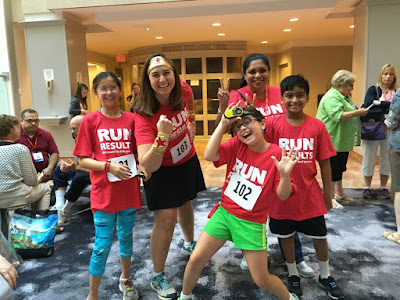Include Elementary School Students in Your Advocacy
It's frustrating to feel like you're too young to even be a "young" advocate.
Yet, that's what so many elementary school advocates face. College-age activists are the "younger generation" and so are high school students. Middle schoolers are rare, and then it seems like people don't even consider kids 5th grade and younger to be real advocates at all.
 |
This blog is written by a teenager, mostly for teenagers, but the whole point is that there's no minimum age to speak out and influence policy. Yes, the methods and challenges are different depending on your age, but you can still do it. In fact, younger kids have even more of an advantage sometimes because people are interested in what you have to say! Your age makes you stand out.
Little sister: If you write a letter to Congress and ship it off there, the Senators might send you a letter back saying "I will watch this!" But if someone comes in and physically talks to them and then hands in a bunch of letters from kids and adults, and everyone is posting it on media... everyone's agreeing with this, and you send letters and more letters... It's sorta like the Senators and Representatives might get in trouble if they DON'T.

In addition to my own lobbying experience in elementary school, here are just a few examples of elementary school advocates I know:
- A 9-year-old in my Sunrise School course, learning about how to research his city's budget and connect with organizations speaking up about it
- A fourth-grader giving a speech about climate change at a virtual Earth Day event
- My elementary school pals at the RESULTS International Conference-- there's at least a couple every year (used to be just myself and my sister, but now there are more which is awesome, and I can no longer fit into that category lol)
- A Girl Scout troop of kindergarteners and first-graders decorating banners, calling on their Congresswoman to support global education funding.
In this video, I made one of my very first phone calls to Congress. My mom gave me the support I needed, which included a call script and her patience as I practiced it out loud, and she never made me feel any less than the adult RESULTS volunteers.
So, how do you include K-5th graders in your advocacy? [Yes, I know some school districts count 6th grade as elementary, but mine doesn't.] Invite them to your meetings, and make sure your activities are accessible, just as you would for other members of the group! Empower your volunteers, without being condescending or tokenizing them. Kids aren't just future citizens, they are stakeholders and constituents today.
As for a specific call to action: find one elementary school kid to write an email or make a phone call to Congress with you.
- Locate student. (Younger sibling? Cousin? Neighbor? Local scout troop that needs some virtual activities to do during COVID?)
- Explain the issue, and allow them to ask questions and share their own opinions & stories with you.
- Demonstrate the skill you're going to practice (make a phone call in front of them and show that it's not scary, or read through a letter to Congress with them that you already wrote).
- Help them take their own action. If they're not in your immediate family and you're doing this online to socially distance, it's a good idea to have a parent nearby because kids may not have their own phones or emails.
- For an email form to submit a comment to a member of Congress, visit their websites and look for a form under the "contact" page
 |
| The email form for Nebraska Senator Ben Sasse, for example found on https://www.sasse.senate.gov/ |
What can you write about? Well, I have three ideas at the moment!
- Global Health: Congress must act urgently on a global response to the pandemic. Read more about that action from RESULTS at the link, and here is a sample call script:
- "Hi, my name is _____ and I'm a constituent. My ZIP code is ____. I'm a student, and it's really important to me that we stop the pandemic in a way that saves as many lives as possible and works with other countries. Can you ask Senator/Representative _______ to make sure the next COVID-19 relief bill includes at least $20 billion dollars to help people around the world? Thank you"

- U.S. poverty: Congress and the White House must pass rent relief. This is another important action from RESULTS because housing is health care, especially during a pandemic and economic crisis.
- "Hi, My name is ___________ and I am from _______. Congress must pass a COVID bill with rent relief so that people who rent their homes can have safe housing during the pandemic. Please tell the senator/representative to prioritize getting a bill done that has $100 billion emergency assistance for renters. Thank you"

- Environmental Justice: Ask members of Congress to cosponsor the THRIVE Agenda resolution. Okay this one isn't just environmental justice; it's also about fighting poverty and strengthening Indigenous tribal sovereignty and racial justice and more, so pick one of these to focus on when you're explaining it. You can use this page on congress.gov to see if your representative is already a cosponsor!
- "Hi, my name is ______ and I am a constituent. My ZIP code is ______. I'm a student and I believe we need a COVID response that helps everyday people recover and have good jobs while we fight racism and climate change. The THRIVE resolution will help us achieve those things, so will the Senator/Representative cosponsor the THRIVE resolution?"
 |
| Two fifth-graders and one third-grader at the RESULTS International Conference |


Comments
Post a Comment